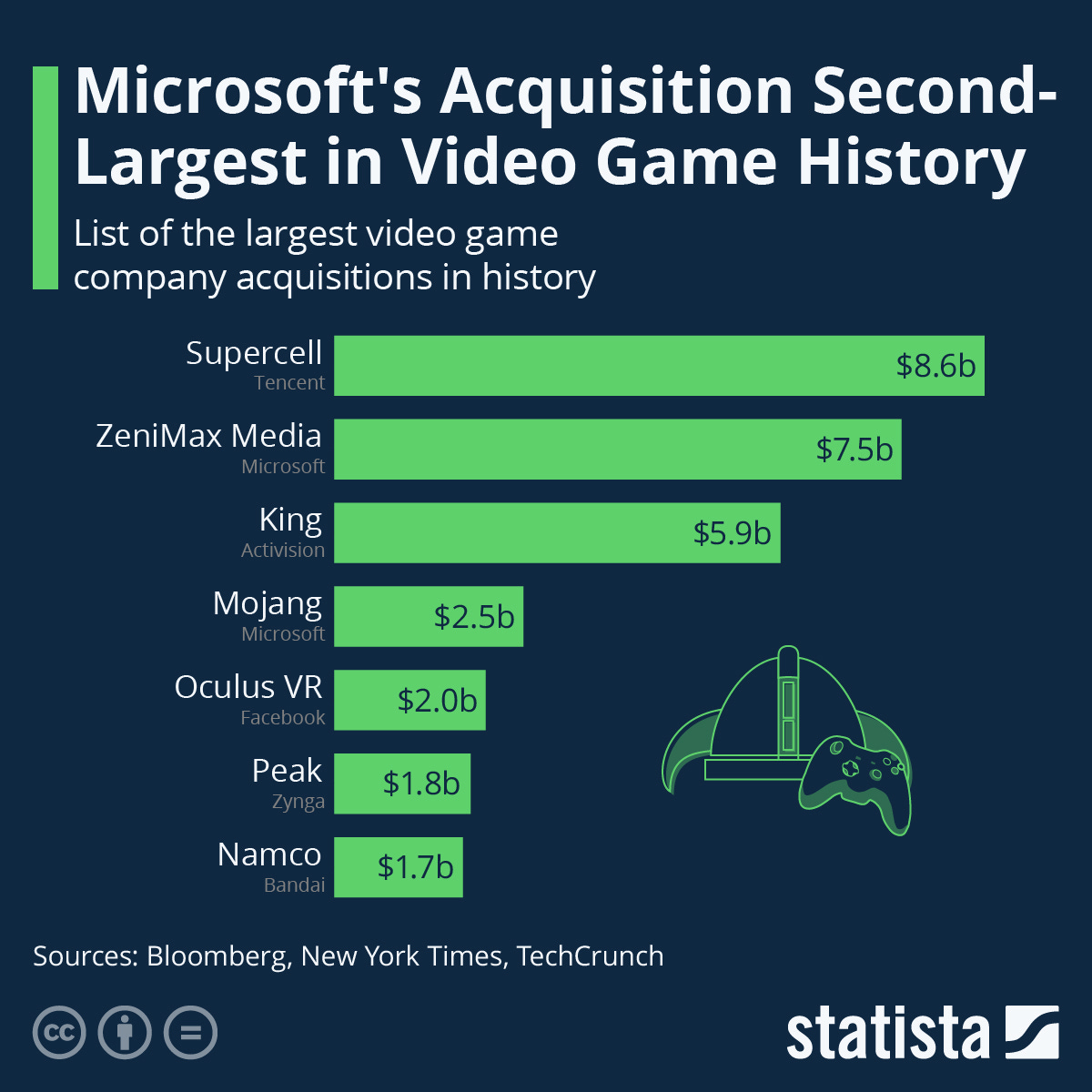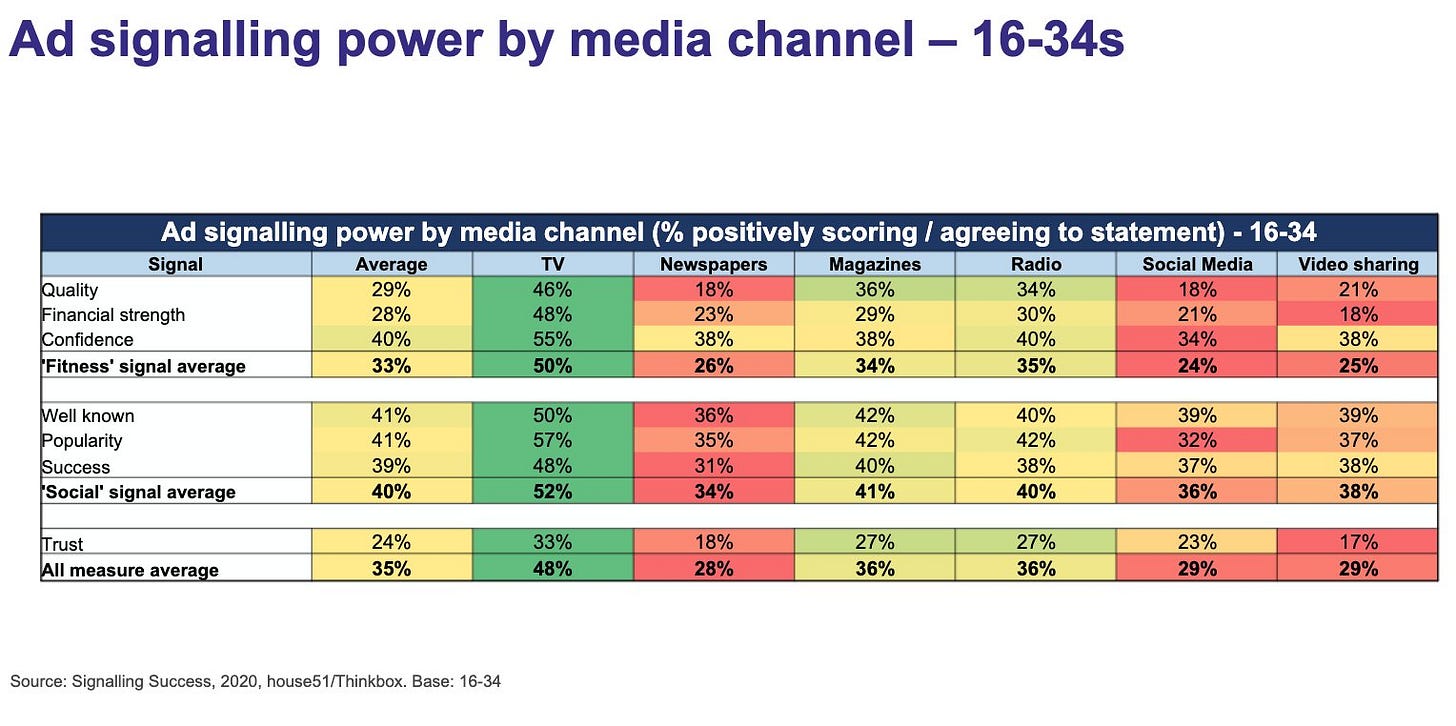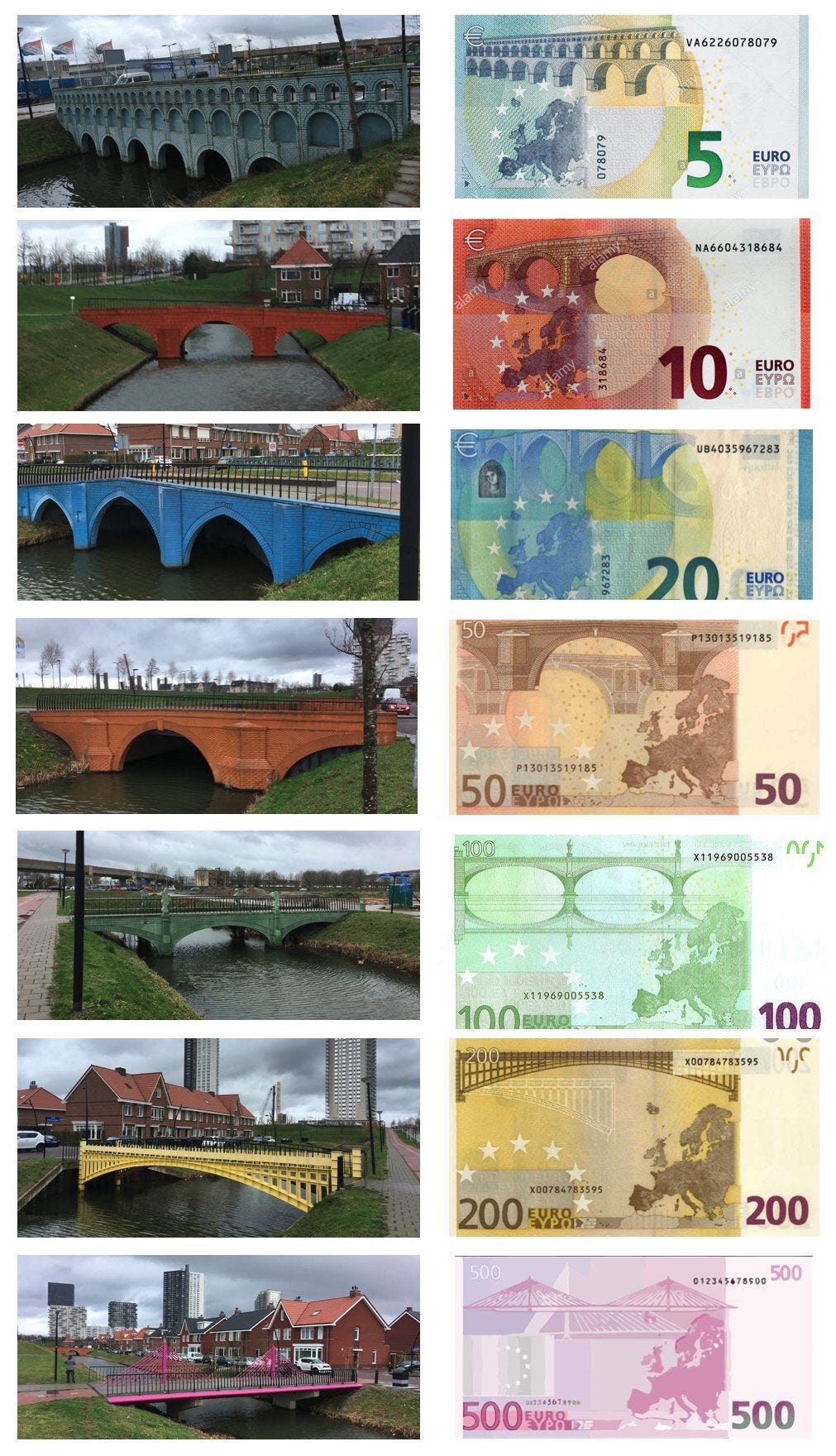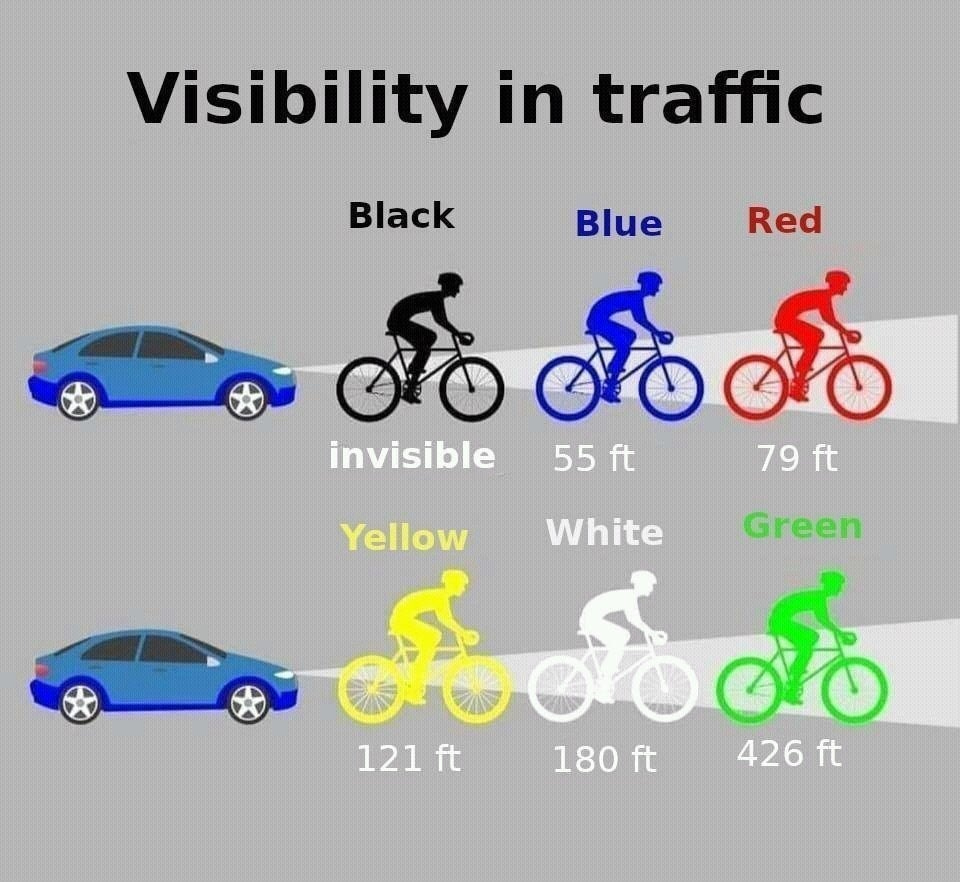Marketing BS Weekly Briefing: Right Wing Firms, Baby Name SEO, Upfronts, Football incentives, Bank note bridges and more
What Third Way CMOs need to know this week
Lots of follow-up from yesterday’s essay. Tomorrow’s podcast will be with Fred Swaniker, founder of Africa Leadership University. Here is his mainstage TED talk if you want to prime the pump for tomorrow.
Meta/Follow-up
Facebook: An anonymous Facebook executive claims to Politico that right wing messages that resonate on Facebook do so not because of of Facebook’s algorithm, but because right wing messages in general are “better at connecting with people on a visceral level… It's why tabloids do better than the [Financial Times], and it's also a human thing. People respond to engaging emotion much more than they do to, you know, dry coverage. ...This wasn't invented 15 years ago when Mark Zuckerberg started Facebook.”
NYTs: The paper of record publishes an editorial telling social media companies they need to have a policy on how to cover Trump if he (wrongly) claims he has won the election. Good idea. But also a good idea: NYTs, television and radio stations and the rest of media should ALSO have a policy… Why are Facebook and Twitter called out specifically (we know why).
Customers vs Employees: Spotify employees are threatening to strike if their demands for editorial control over Joe Rogan future episodes are not met.
Marketing to Employees: Regular readers know why firms tend to be left-leaning. But Bryan Caplan asks, “Where are the right wing firms?” and poses some questions I do not have good answers for
Marketing to Employees 2: Hootsuite (a Canadian company) backs out of a three year contract with ICE after ~100 employees were “extremely vocal” is their opposition
Marketing to Employees 3: Coinbase CEO has shared his company’s values document that describes it as a “mission-driven company” - where the “mission” is to be a high performing, growing, profitable company that does not get distracted by social causes. Great for getting ahead of potential problems, and in theory attracting the type of employee that he wants (one that cares about growing the business vs getting involved in social causes), but good luck holding to this as the company grows. In the meantime though, it differentiates the company from many of the others in the Valley. Being “different” can be an advantage in marketing to consumers AND to employees. The post ends with a link to Coinbase’s career page.
Hugh Jackman/Ryan Reynolds: Shikala (a Marketing BS reader) shares her take on the creative partnership across the four brands that was mentioned in last week’s briefing.
News:
Department of Justice: In 1996 Congress passed the Communications Decency Act. Section 230 of the act protected companies like Compuserve and Prodigy from being sued over comments left by users. Today giants like Facebook and Twitter are protected from taking the blame for anything posted on their platforms. On Wednesday last week the DOJ proposed changes to those laws. No changes expected until after the election, but if it does pass, expect the big players to roll with it, while new entrants find it harder and harder to compete.
Apple: Is suspending fees for online events. Apple is realizing some battles are not worth fighting. If the revenue impact is small, maybe it is not worth the PR hit to fight for their principles (the principle here being they should take 30% of everything tied to the iPhone)
TikTok: Un-banned by judge. Great for rule of law, but still a mess and the core problem has not been solved.
Microsoft: Announced the acquisition of ZeniMax Media (parent company of game studio Bethesda, publisher of The Elder Scrolls, Fallout and DOOM). The acquired studio will continue to release games for other platforms (like Sony), but this dramatically improves the content for Microsofts Xbox “all you can eat” bundle. This is Microsoft’s third largest acquisition, and the 2nd largest game studio acquisition of all time.


Marketing / Advertising
Signaling: Thinkbox researched what an ad signals by marketing channel. Unsurprisingly, more expensive, higher entry cost channels signal higher quality and trust to viewers.

Tricks: The Visual Capitalist as summarized 29 psychological “tricks” that companies use to drive sales. Worth a scan every quarter or so when you are looking for new ideas.
Luxury Goods: More psychology. The “Last Psychiatrist” looks at the luxury watch advertisements by Patek Philippe in the Economist, “You never actually own a Patek Philippe. You merely take care of it for the next generation.” Good stuff in here if you just ignore the moralizing. I like this sentence: “The point isn't to give it to the kid, the point is to convey the impression that he is going to give it to the kid”
Disney: Disney has build pages for baby names, “Boys names that start with P”, and then promote “Disney Family Sunday” on Disney+ at the top of the pages. They are consistently ranking in the top few spots on Google alongside TheBump. Smart “lateral thinking” SEO.
Procter & Gamble: Chief Brand Officer Marc Pritchard has announced the company will NOT be participating in “upfronts” where large advertisers commit to bulk purchases of ad time on the networks in advance to guarantee inventory at a “discount” (or at least guaranteed price). If you don’t need the guarantees, it is usually cheaper to buy whatever remnants are left at the last minute, but that makes planning more difficult and most CPG brand teams are not built around that model. But sometimes (like during COVID) buying upfront can end up being FAR more expensive. TV advertising definitely has some diminishing returns to scale, and Pritchard if trying to change that: “[P&G] is doing more direct deals with minority-owned and other media, and wants to end the “Groundhog Day” of broken promises.”
UberEats: Weird Mark Hamill and Patrick Stewart ad. This is another example of Augmented PR, where the ad itself gets media coverage.
NFL: The stadiums had unused space where the crowds used to be, so they sold it to advertisers based on the historical impressions those crowds received in television coverage. But then the networks decided that panning over ads was less interesting than panning over excited fans, and the impressions dropped by an order of magnitude: “I was incredibly disappointed. It made for an interesting conversation with my client, who watched the game intently to see their logo and never saw it.”
Emmies: I missed this last week. The Emmy for best commercial went to “Back to School Essentials” by Sandy Hook Promise. Emmy /= best commercial, and certainly not most effective commercial. Personal related: My very good friend won his first Emmy as a Co-executive producer for Schitts Creek. He is easily the funniest person I have ever met in-person, and I’m excited for his own show which might come out next year (COVID-willing).
Business / Strategy
Amazon 1: A company builds a copycat of the Peloton bike, and then tries and makes people think it is an Amazon offering by calling it the "Prime Bike" (and selling it on Amazon). If you are going to copy one brand, why not copy two?
Amazon 2: WSJ exposes how Amazon stops competitors (like Roku) from advertising on their site. People mad about this, but Walmart doesn't allow Kroger to advertise in their store either. ABC doesn’t advertise on NBC. Why is this considered new? (We know the answer)
Cloud Gaming: New essay from Matthew Ball on how games will change as the technology shifts to cloud gaming.
Notion: Google launched a Notion clone last week. For those unfamiliar with Notion and how it works I thought this was a very good explainer.
Incentives: Reddit thread on incentives gone wrong. Lots of good stuff, but this story made me laugh out loud:
The organisers of the 1994 Caribbean tournament cup had a rather odd change to the rules for extra time. If a game was still drawn at full time, it would go to extra time but the first goal scored would win - this is perfectly normal (the "golden goal" rule). What was different is that they ruled that winning this way would count as having won by two goals for the purpose of tournament qualification, instead of just one.
Barbados went into a match against Grenada needing two goals to qualify for the main tournament. If they lost, or won by only one goal, Grenada would qualify instead. Under the regular rule, this would mean that if the match went to extra time, there would basically be no point Barbados playing because even if they scored, they would only win by one goal, and not qualify. But the two point rule would motivate them to play on. Sound good?
Well, you might be able to guess what happened.
The match looked like it was about to end with Barbados 2-1 Grenada - a win for Barbados, but not the two goals they needed. So Barbados deliberately scored an own goal in the last few minutes of the match, making the score 2-2, hoping to trigger extra time and a chance to score the magic 2-value goal.
The Grenada players quickly realized they could do the same - score an own goal to make the match 3-2 to Barbados, which would have Barbados winning by only one goal, so Grenada would qualify.
But the Barbados players realized that too.. and so they began to defend Grenada's goal.
So for the last 7 minutes of the match, Grenada were trying to score a goal in either net (since scoring a goal against Barbados would give them 3-2 and they would win the match, and scoring in their own goal would make it 3-2 to Barbados so they would lose the match but win the qualification), and Barbados were defending both.
Amazingly Barbados did actually manage to do so, successfully defending themselves while half of their team were defending Grenada's goal against Grenada, and then scored the golden goal in extra time and qualified!
Retail
Saks: Saks CEO writes a “thought leader” piece on how department stores have failed on what the future looks like. Kevin Hillstrom responds with “but Saks only grew at 3% in 2018, and was “wobbling” for 6-months pre-COVID”. Talk is easier than execution.
COVID and the New World Order
Meat whiplash: Meat got really expensive earlier this year when the slaughterhouses kept shutting down and running at low capacity. But that “kink” in the supply chain caused farmers to build up supplies. Now there are “excess cows” and prices are dropping. But at the same time, quality is increasing, “The extra weeks that cattle spent munching feed on Mr. Owens’s lots meant those cattle added 100 pounds each, much of it fat. As a result, he said, the more-marbled beef from those cattle graded higher. Similar slaughtering delays across U.S. cattle country have swelled supplies of prime beef, the highest grade assigned by the USDA. The percentage of U.S. cattle assigned the rating in the spring jumped above 12%, about twice the five-year average…”
Disney: Disney’s Mulan experiment (release VOD for $30) did not work. Warner Brothers Tenet experiment (release in theaters without much competition, hoping for slow and steady sales) did not work. So Disney has decided to push back their tentpole releases well into 2021. Black Widow (original release date May 2020) is now May 2021. Shang Chi is Summer 2021 and Eternals is fall 2021 (apparently for awards season). Or if you believe Megan McArdle at the Washington Post, maybe movie theaters are done forever….
Halloween: The CDC has decided children (low risk) going door-to-door outside (low risk) wearing masks (low risk) is on net a high risk activity at the same risk level as an indoor haunted house where drunk people are “crowded together and screaming”. They recommend instead “having a virtual costume contest” or “carving pumpkins with members of your own household”. Unfortunately it seems Americans are listening to the advice, and only 9% expect to participate in the holiday this year. If anyone knows a good community for trick or treating near Seattle, let me know. My kids are deciding between Hogwarts and Paw Patrol this year. Related: NYC NYE ball drop will be virtual this year.
Raj Chetty: The leading global micro-economist has analyzed the impact of COVID in the US by zip code and found that it has hit the economic disadvantages much harder (relatively) than the well off. Not surprising, but the best data-driven look at what happened this year you will find.
GPT-3/AI/Machine Learning
Microsoft: The Redmond company has negotiated an "exclusive" license to GPT-3. But, “…the deal has no impact on continued access to the GPT-3 model through OpenAI’s API, and existing and future users of it will continue building applications with our API as usual,” so it’s not “exclusive” in the way most people use the word. Instead, “…its exclusive license gives it unique access to the underlying code of GPT-3, which contains technical advancements it hopes to integrate into its products and services.” So basically Microsoft will be the only company that will be able to build off of the code, but everyone will still be able to build off of the tool.
Acquisitions: AI acquisitions in the past ten years - Apple (24), Google (15), Facebook (12), Microsoft (11), Amazon (8)
Fun
Presidential Letters: Copies of the letters presidents have given to their successors. I expect the next letter will be a little different.
Emotions: Lisa Feldman Barrett’s big idea is that emotions are socially constructed, and the the only “universal” is high/low arousal and high/low pleasantness. Her work was “trending” last week. Here is a good write up on her work from Marginal Revolution back in 2017.
Bridges: When the Euro bank notes were designed they used fictional European “style” bridges so as not to choose between countries. The Dutch town of Spijkenisse decided to build all bridges on a single waterway - including matching the colors of the bank notes.

Hot or Not: How the old website shaped the internet
Visibility: How far away can you be seen at night by color you are wearing

Keep it simple,
Edward


